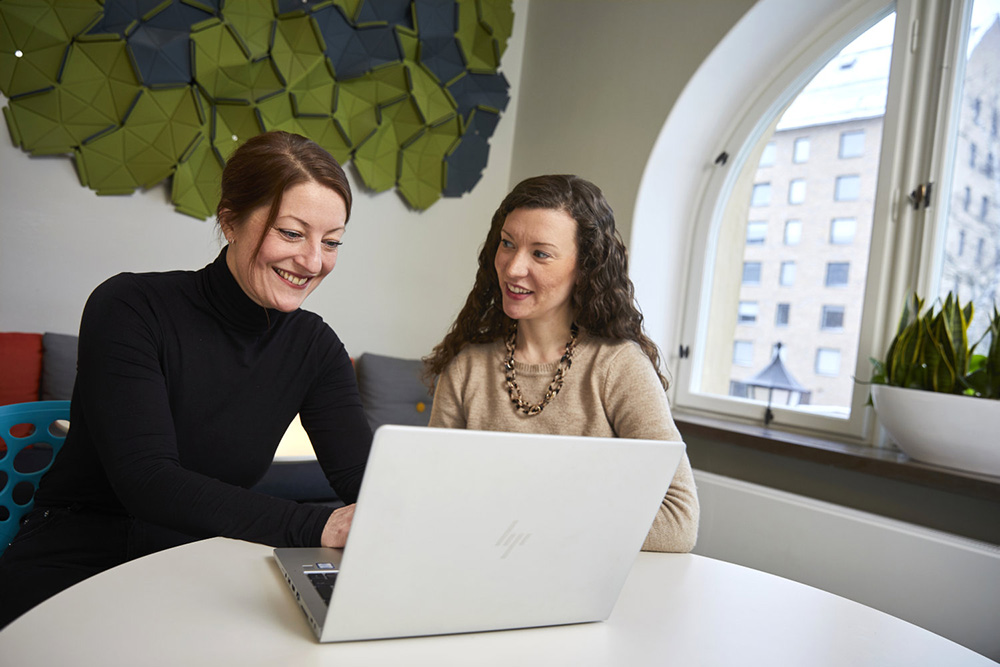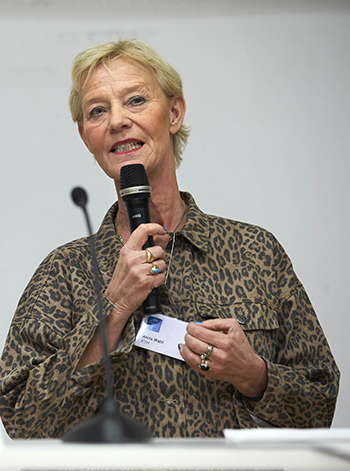A work that makes KTH more modern

Please forward. This sums up the way they think at the KTH Equality Office. By communicating commitment to and knowledge about equality issues on several levels, KTH aims to become more equal - on an everyday basis.
Alice Marshall and Katrin Mörck are sitting in the break room on level 5 at Brinellvägen 8 taking a breather after a hectic weekend. They had organised a course for 120 new student welcomers, who in their turn, are going to welcome the 3,000 or so students due to start at KTH this autumn.
They discussed equality, diversity and equal conditions. And bounced round different thoughts and discussed the dilemma.
“Of how to spread this knowledge throughout the organisation, out in the capillaries, to train the trainer, this is the way we work,” says Marshall, who works with students.
Mörck, the project manager, emphasises that it’s just as much about helping people to put into words what their situation really feels like on an everyday basis - where you can encounter everything from unequal terms and conditions to sexual harassment.
“Terms such as interpretative prerogative, equality, racialisation, are not self-evident to everyone. And what you do not want or are unable to understand can easily feel a bit threatening and create resistance. Talking over the heads of people and creating more distance is the last thing we want. That the five person strong equality office could make all 15,000 people at KTH equal is naturally an impossible equation – in many ways. Instead, they concentrate on educating people, developing knowledge and awareness on these issues - at the schools, among managers and leaders, employees and students. So that in turn, these people dare to open their eyes to see uncomfortable patterns, are able to question things, share their thoughts and support others. To build a structure and culture.”

“Change work in an organisation must be allowed to take time. It’s very much about conversations, advice, reflection. Force feeding doesn’t work as a method if you want to achieve lasting change,” Anna Wahl says by phone. She is Vice President for Equality and Values, and also Head of the Equality Office.
What is the greatest challenge?
“That KTH is so big. But we can see things are moving in the right direction. Of course, we encounter ignorance, a lack of interest and sometimes even sheer resistance, but the climate around these issues is generally positive. That the issue has been raised means that KTH is seen as a modern university, is the impression I have got from students. More and more people are also realising that equality is a quality issue.”
In what way?
“You miss out on incredibly much within research, education and different technology applications if you have a totally homogeneous group. Your perspective can easily become one-eyed which can then spill over onto the scientific quality and in the longer term, we risk losing talents.”
What is the most common prejudice about equality?
“That can be comments along the lines of “we don’t have any problems”. Or that it is nagging, boring or passé. One researchers said on a course that he had expected it to be incredibly boring, but admitted afterwards that it was really interesting.”
Back in the break room on level 5 where the question of when KTH will become truly equal finally comes up:
“It is a vision, not something you tick off on a list,” says Marshall while Mörck admits:
“It's impossible to say. It is the journey getting there that is what is important.”
Words: Jill Klackenberg

